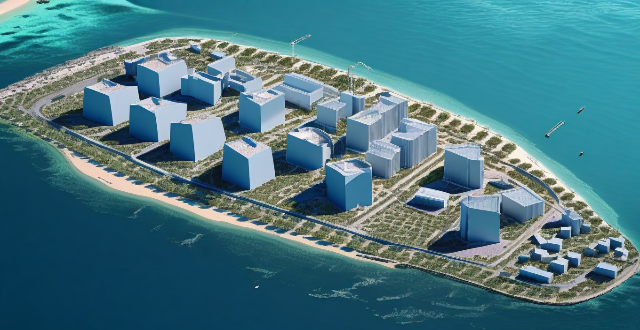Tidal power is a promising alternative energy source that harnesses the energy of ocean tides to generate electricity. However, its development and implementation face several challenges, including technical, environmental, economic, and social aspects. Technical challenges involve efficiency and reliability issues with turbine design, maintenance, and power transmission. Environmental challenges include potential impacts on marine life and water quality. Economic challenges involve high upfront costs and market competitiveness. Social challenges encompass community acceptance, legal and regulatory hurdles, and local economy impacts. Addressing these multifaceted challenges is crucial for the successful development and implementation of tidal power on a larger scale.

Challenges in Developing and Implementing Tidal Power as an Alternative Energy Source
Tidal power, which harnesses the energy of ocean tides to generate electricity, is a promising alternative energy source. However, there are several challenges associated with its development and implementation. These challenges can be broadly categorized into technical, environmental, economic, and social aspects.
Technical Challenges
Efficiency and Reliability
- Turbine Design: The design of tidal turbines needs to be optimized for efficiency and durability, as they operate in a harsh marine environment.
- Maintenance Issues: Regular maintenance can be difficult due to the submerged location of tidal turbines, leading to higher operational costs.
- Power Transmission: Transmitting power from offshore locations to onshore consumers can be complex and costly.
Predictability and Scalability
- Tidal Prediction: The availability of tidal energy depends on predictable tidal cycles, making it less flexible than other sources like solar or wind.
- Scalability Concerns: There may be limited suitable sites for large-scale tidal power plants, restricting the potential for expansion.
Environmental Challenges
Ecological Impact
- Marine Life: The presence of tidal devices can affect local marine ecosystems, potentially harming fish and other marine life.
- Navigation Hazards: Tidal power installations can pose risks to navigation safety, especially in busy shipping lanes.
Water Quality and Sedimentation
- Sediment Disruption: Tidal power structures can disrupt sediment patterns, affecting coastal areas and habitats.
- Water Circulation: Changes in water circulation patterns can lead to altered temperature and salinity levels, impacting local ecology.
Economic Challenges
High Upfront Costs
- Capital Investment: The initial investment required for building tidal power infrastructure is high compared to some other renewable energy sources.
- Return on Investment: The payback period for tidal power projects can be long, discouraging potential investors.
Market Competitiveness
- Energy Pricing: Tidal power must compete with established energy sources that have lower market prices.
- Subsidies and Policies: Government support through subsidies and favorable policies is crucial for the viability of tidal power projects.
Social Challenges
Community Acceptance and Awareness
- Public Perception: There may be public resistance due to lack of awareness about tidal power benefits and concerns over environmental impacts.
- Local Economy: The impact on local economies, both positive (job creation) and negative (fishing industry disruptions), must be carefully managed.
Legal and Regulatory Hurdles
- Legislative Frameworks: Adequate legal frameworks for tidal power development might not exist in many regions.
- Property Rights and Access: Negotiating property rights and access to tidal zones can be complex and time-consuming.
In conclusion, while tidal power offers significant potential as a renewable energy source, addressing these multifaceted challenges is essential for its successful development and implementation on a larger scale.